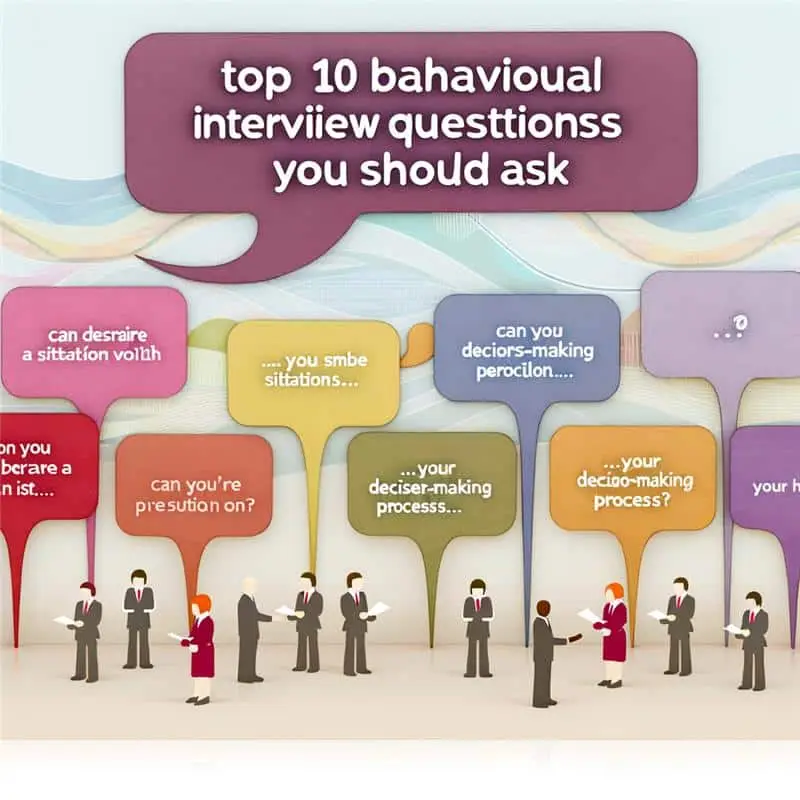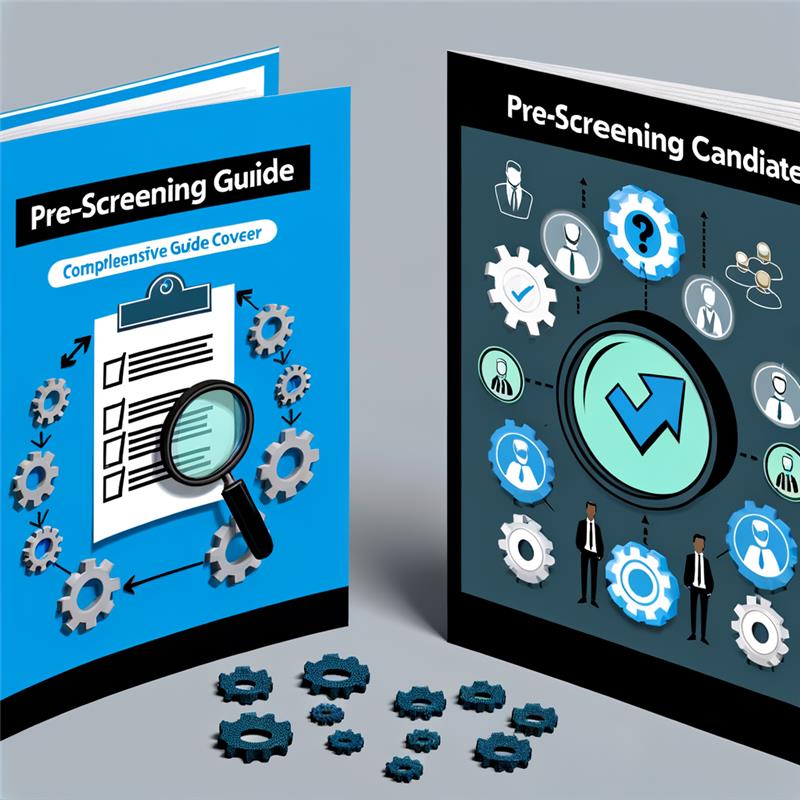Behavioral interview questions are designed to assess a candidate’s past behavior in specific work situations. By asking these questions, interviewers can predict how candidates may behave in similar situations in the future, which helps in hiring decisions.
Behavioral interview questions focus on key competencies like adaptability, work ethic, and problem-solving. They’re particularly useful in revealing how candidates manage challenges, work with teams, and achieve results under pressure.
Top 10 Behavioral Interview Questions
- Tell me about a time you faced a significant challenge at work. How did you handle it?
- This question helps assess problem-solving and adaptability.
- Can you describe a time when you had to manage multiple tasks simultaneously?
- It’s essential for determining organizational skills and the ability to work under pressure.
- Give me an example of a situation where you had to adapt quickly to changes.
- This question is critical to understanding how adaptable a candidate is.
- Tell me about a time you had to collaborate with a difficult colleague. How did you handle the situation?
- Tests interpersonal skills and teamwork.
- Describe a project where you took the initiative to improve a process.
- Evaluates proactivity and leadership.
- Tell me about a time when you had to go above and beyond to meet a deadline.
- This question is great for evaluating a candidate’s dedication and work ethic.
- Explain a time when you failed at something. How did you recover?
- Helps in understanding how a candidate learns from failure.
- Can you provide an example of when you had to adjust to a significant change at work?
- Measures how well candidates adapt to shifting work environments.
- Tell me about a time you had to work with limited resources to achieve a goal.
- Assesses resourcefulness and problem-solving.
- Describe a situation where you had to meet a tight deadline while maintaining high quality.
- Measures time management and focus under pressure.
Why Behavioral Interview Questions Are Crucial in Hiring
Behavioral questions provide deeper insights into a candidate’s approach to work. These questions not only measure qualifications but also shed light on soft skills, like teamwork and adaptability, which are critical for long-term success.
Key benefits of asking behavioral questions in interviews:
- Helps in assessing problem-solving skills.
- Reveals past performance in challenging situations.
- Measures cultural fit based on candidate responses.
Examples of Behavioral Interview Questions for Evaluating Work Ethic
When hiring for roles that demand a strong work ethic, these behavioral interview questions will help determine how committed candidates are to delivering results:
- Tell me about a time when you worked on a project that required extra effort. How did you manage your time to meet the goal?
- Give an example of when you went the extra mile to ensure a project was completed successfully.
- Describe a situation where you were given more responsibility than expected. How did you handle it?
How to Answer Behavioral Interview Questions: STAR Technique
The STAR technique (Situation, Task, Action, Result) is an excellent way to answer behavioral questions. Here’s how it works:
- Situation: Describe the context or challenge.
- Task: Explain what your role was in addressing the issue.
- Action: Detail the specific actions you took to resolve the situation.
- Result: Share the outcome and what you learned from the experience.
Sample Answer to Behavioral Interview Question Using STAR Technique
Question: Can you describe a time when you had to adapt to a major change at work?
Sample Answer:
- Situation: “In my previous role, my company underwent a significant organizational restructure.”
- Task: “As the team lead, I had to ensure my team adapted to the new processes efficiently.”
- Action: “I organized several training sessions and one-on-one check-ins to help my team adjust to the new workflow.”
- Result: “As a result, we maintained our performance levels during the transition and completed all projects on time.”




